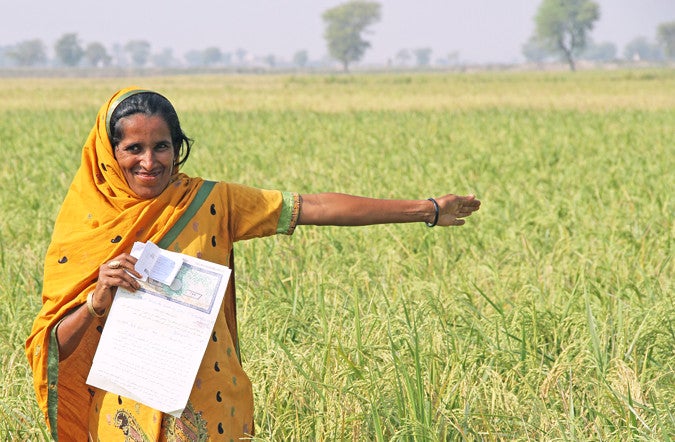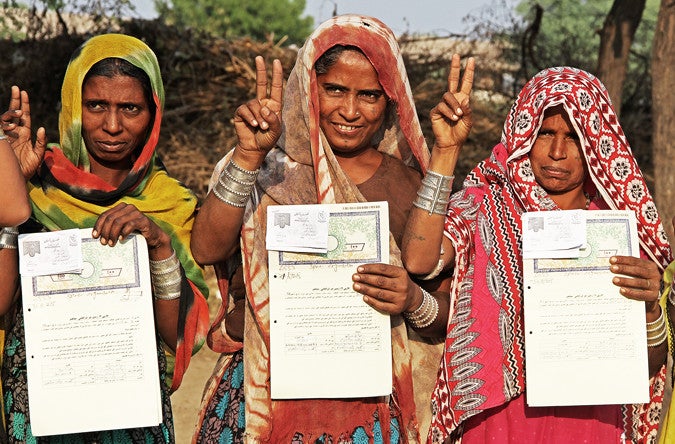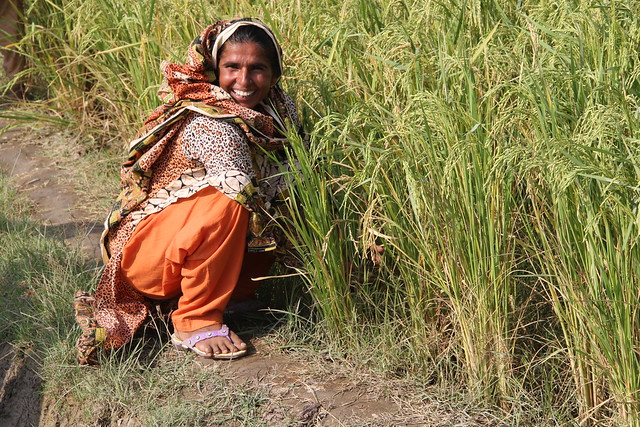Landless women farmers receive land tenancy for the first time in Pakistan
Date:
Author: Faria Salman
Durdana is a young widow from Pakistan’s Dadu District in Sindh Province. She is one of 1,214 landless women farmers and sharecroppers who have received land tenancy rights for the first time in their life.

Speaking of her new status, Durdana shares that farming is her life: “I do not know anything else but working in the fields. Who could think a poor female widow like me would be given land! For the first time in my life I can say something is mine. This land, as far as the eye can see is mine - this paper says so. This is my land and I am its queen,” she says beamingly.
UN Women Pakistan in collaboration with local partners, Baanhn Beli and Gorakh Foundation, in Mirpur Khas and Dadu Districts, respectively, is working with 1,214 vulnerable rural women farmers, like Durdana, to acquire land tenancy rights from their feudal and tribal landholders. These landless women farmers were trained and mentored to prepare tenancy agreements and landholding maps with their male landlords.
In the process, they have been provided with a viable livelihood option that could take them out of poverty and enable their upward social mobility.
Women’s access to land rights is a critical asset for Durdana and other vulnerable rural women. Before becoming tenants and without the security of tenure they were unable to make long-term plans and invest in farming, protect themselves from the impacts of natural disasters, or even enhance their standards of living. In many cases these women were coerced to leave their lands when the crop cycle was at the final harvesting stage resulting in heavy economic losses and psychological trauma for them and their families. In the absence of formal written agreements they were unable to protect their rights to reap the full benefits of their crop.
The Province of Sindh has the highest rate of landlessness in Pakistan. Whilst the Sindh Tenancy Amendment Act 2013 protects tenants and peasant farmers, its weak implementation makes women farmers vulnerable to insecure verbal tenancy arrangements.

Through these tenancy agreements, feudal and tribal male landlords leased their terrains to women farmers for an agreed period of time, giving them access to the land, a place to live, and the possibility of operating the farms as per their plans while receiving a portion of profit from the crops grown.
This initiative titled, “Livelihood restoration, protection and sustainable empowerment of vulnerable peasant communities in Sindh province”, implemented by UN Women, FAO and ILO under the UN Trust Fund for Human Security, is expected to contribute greatly in rural transformation and women’s empowerment, and can be replicated across Pakistan with guidance and support of partners, landlords and local governments.
Photo Gallery
For more information contact:
Faria Salman
Strategic Management and Partnerships Officer & Communications Focal Point for
UN Women Pakistan
Email: [ Click to reveal ]
